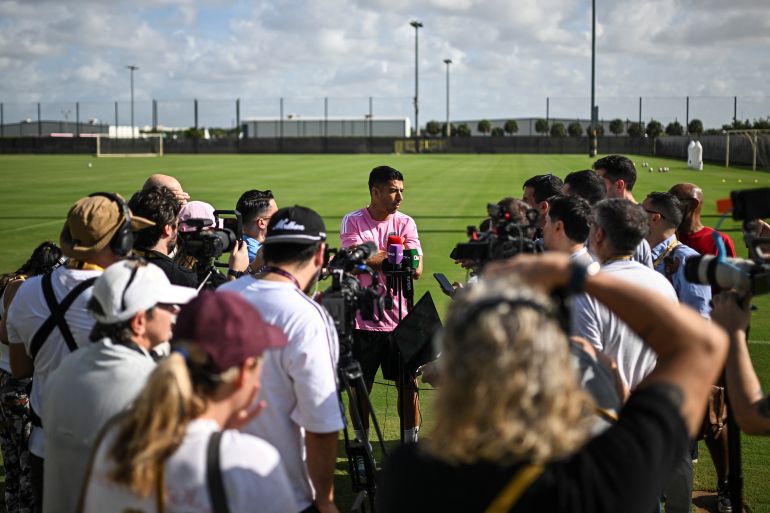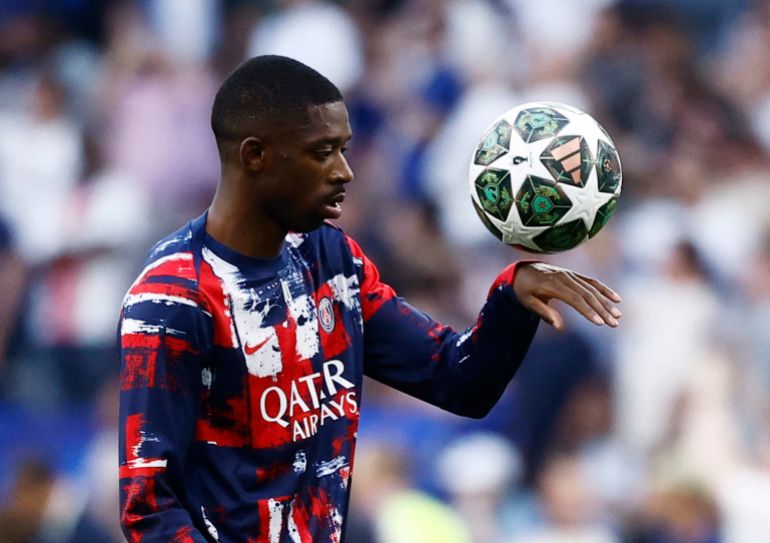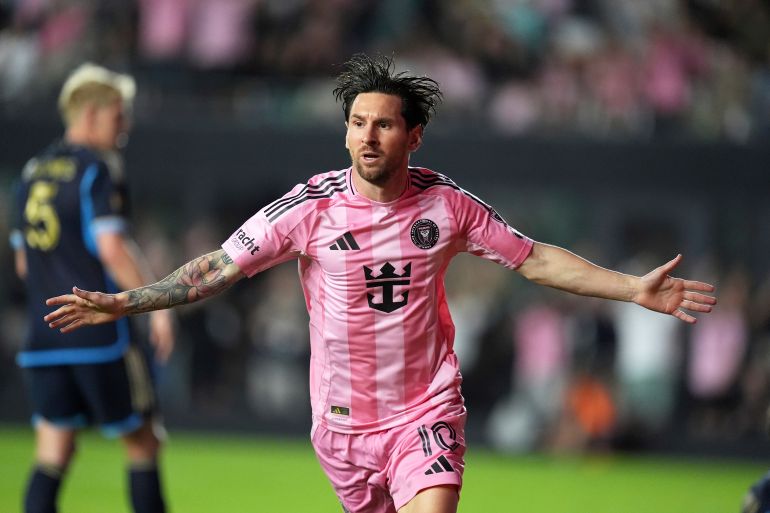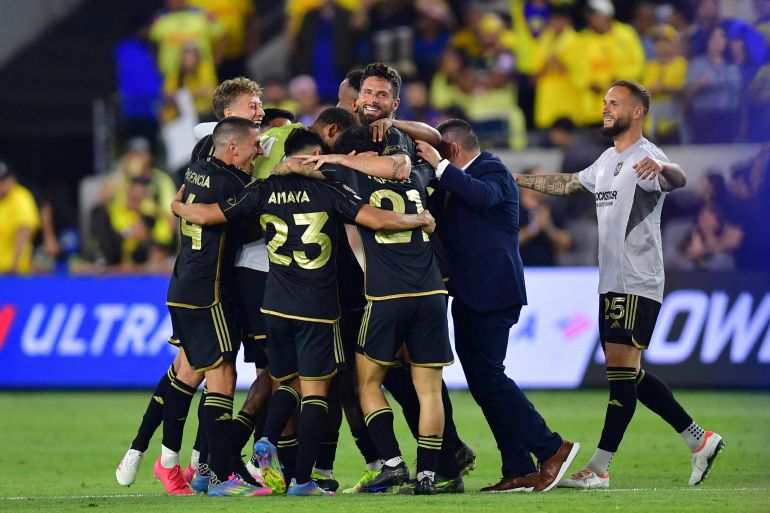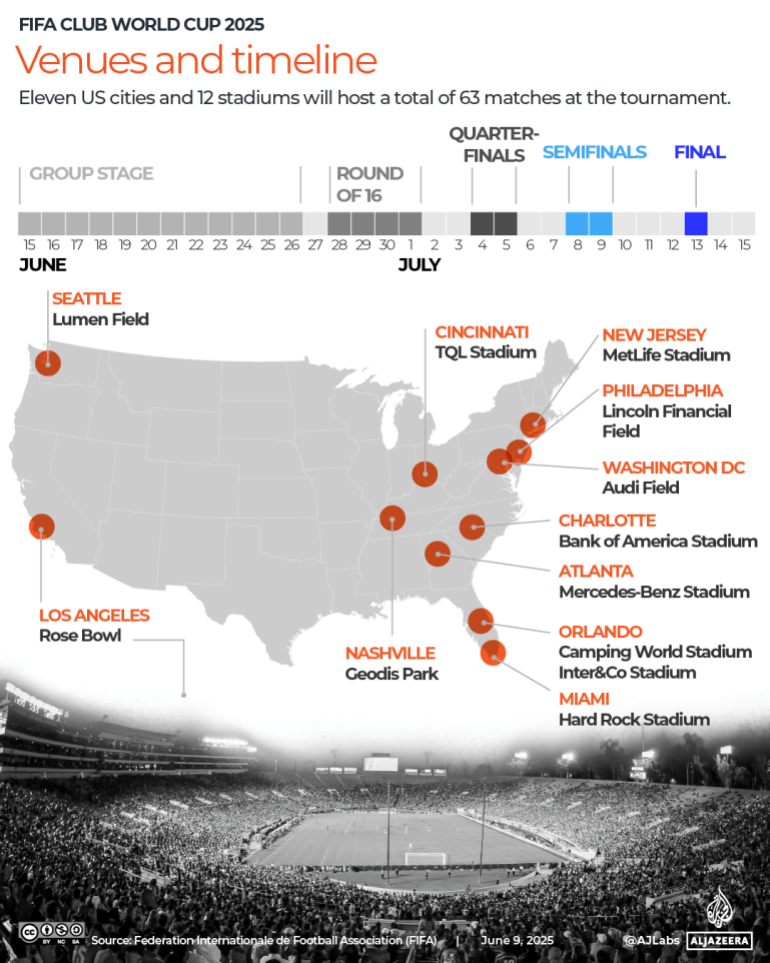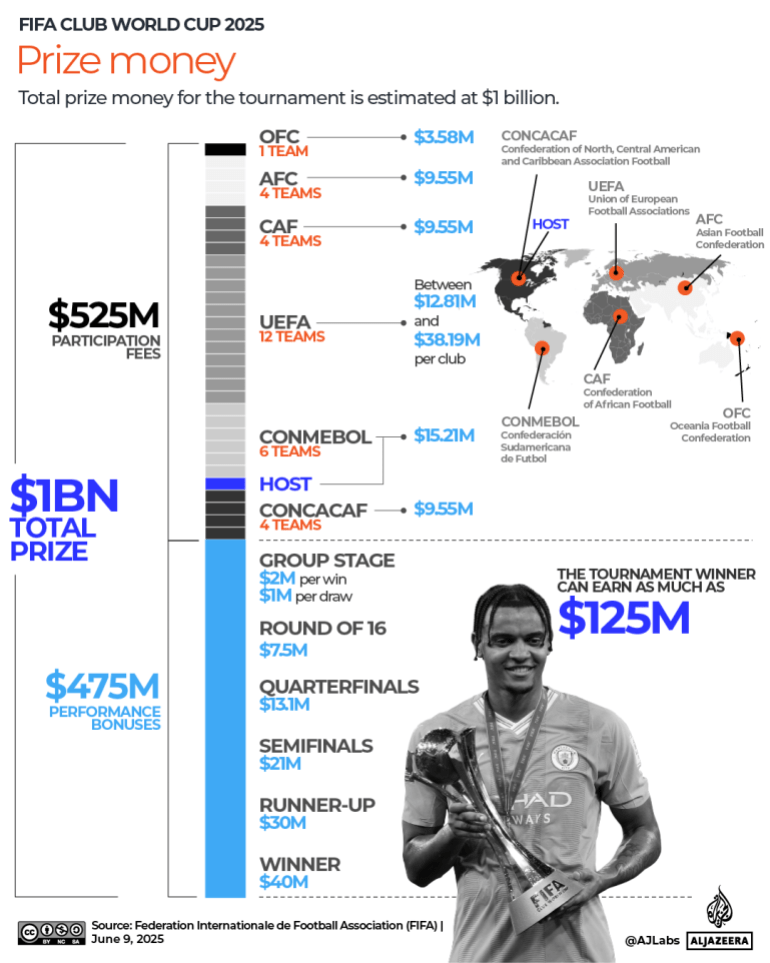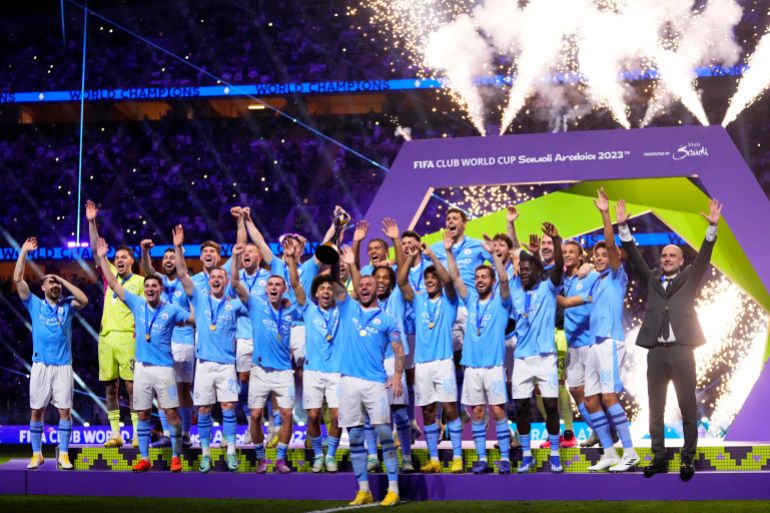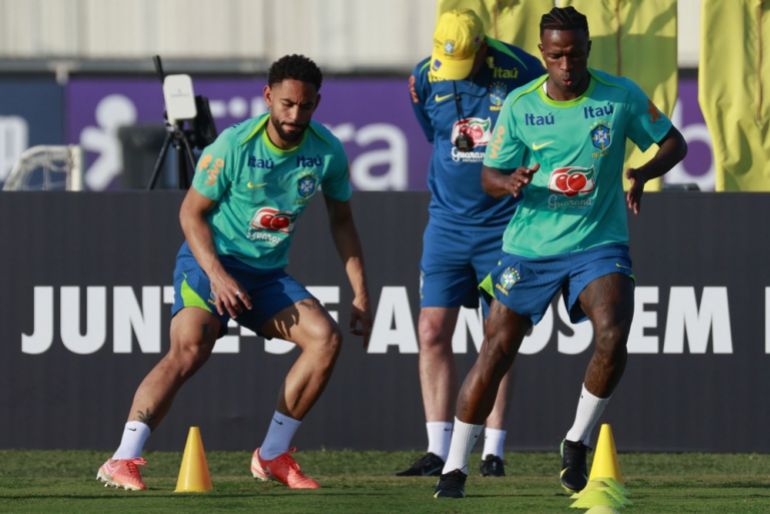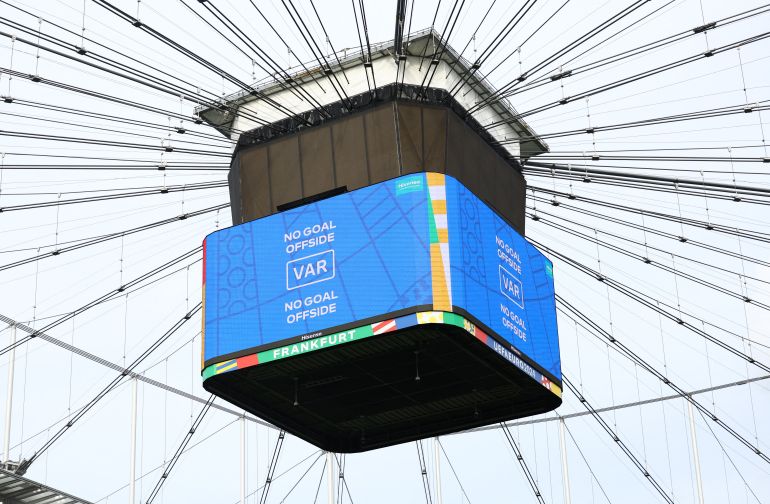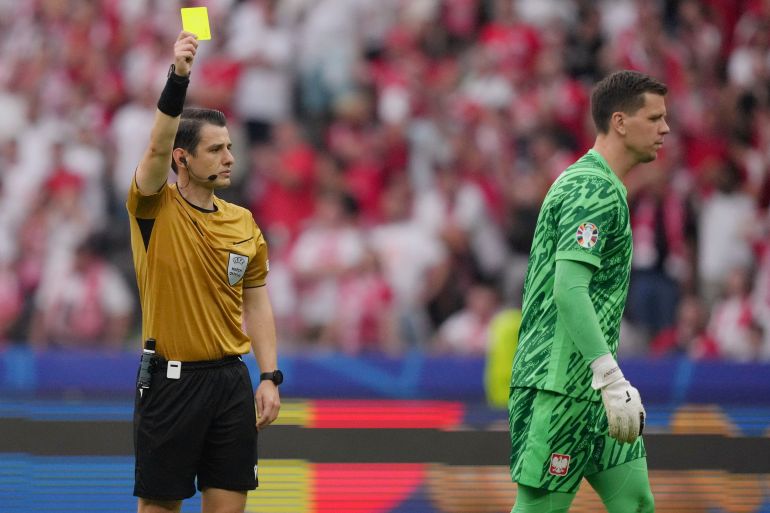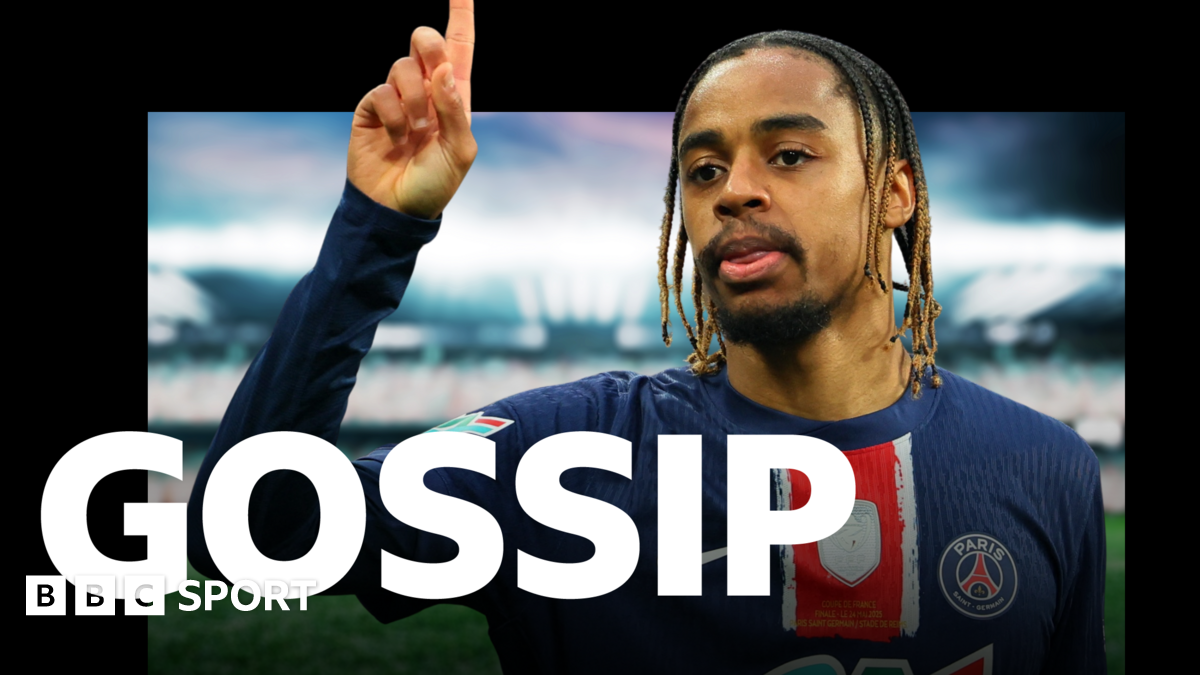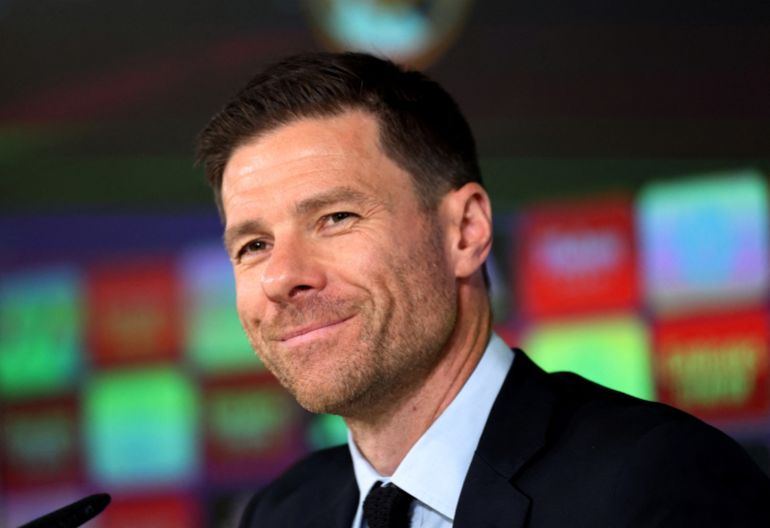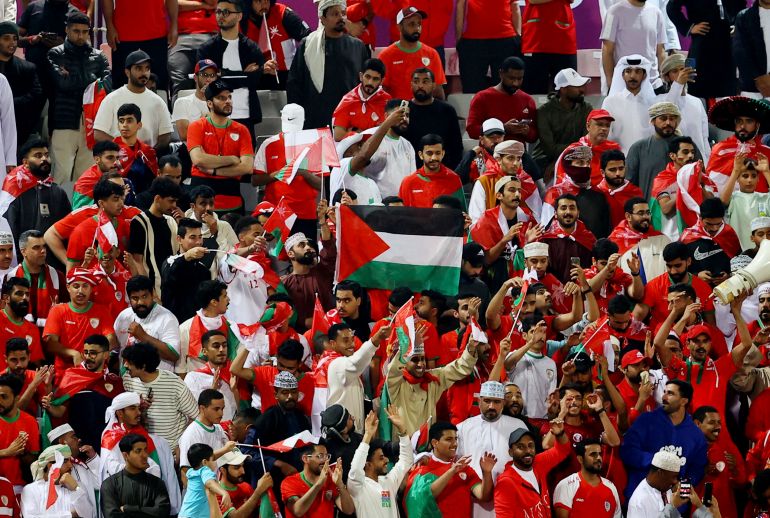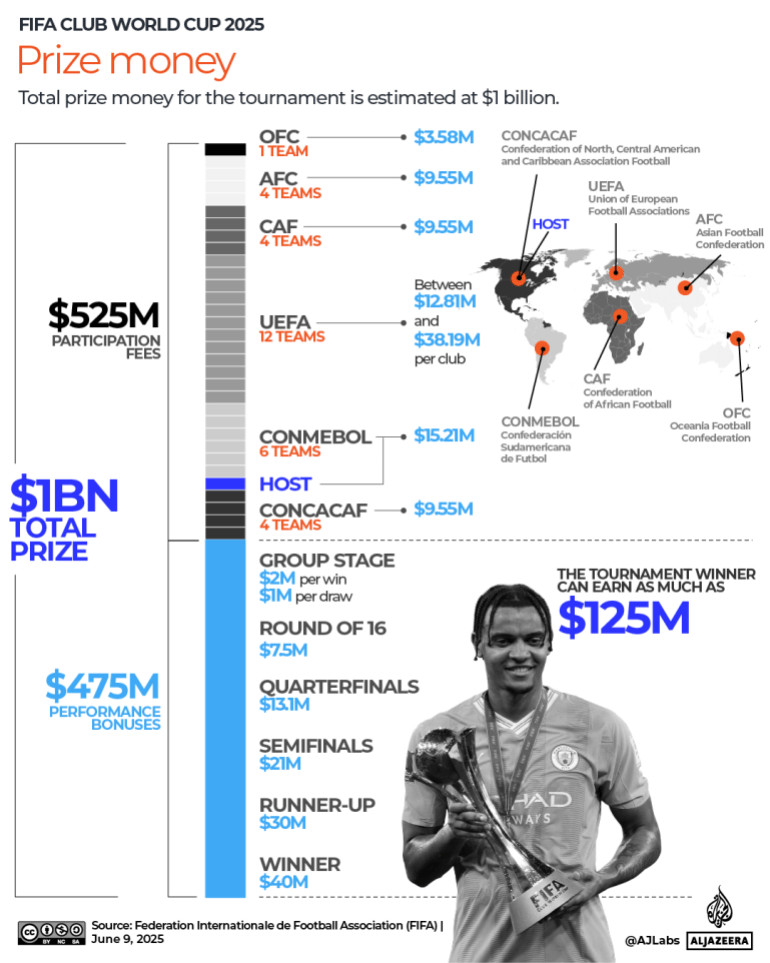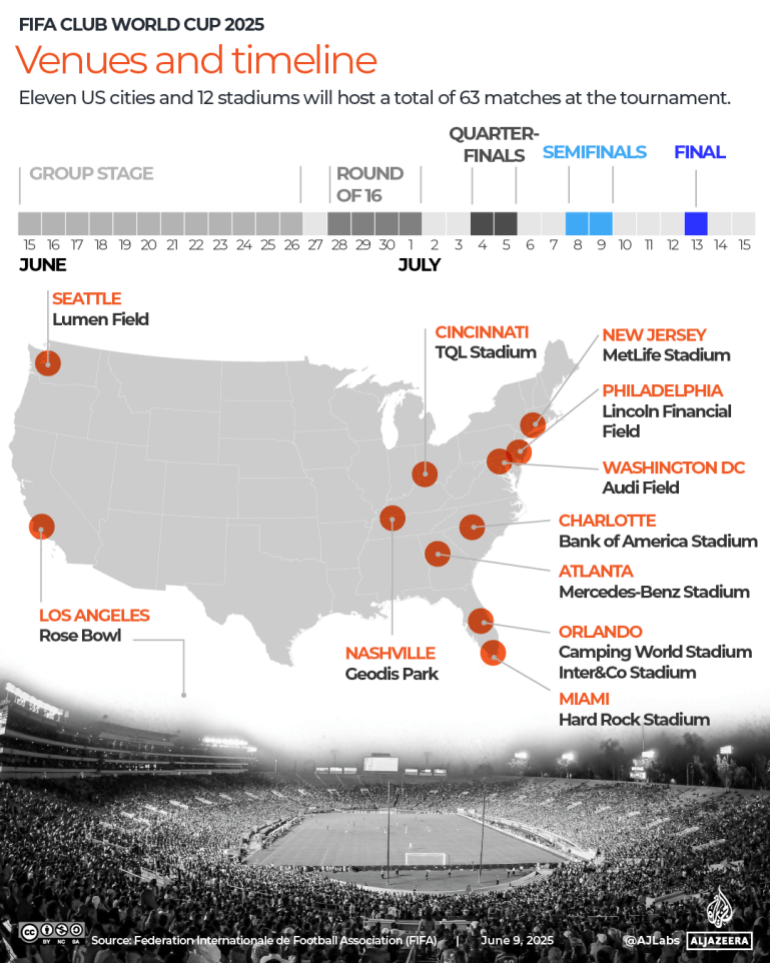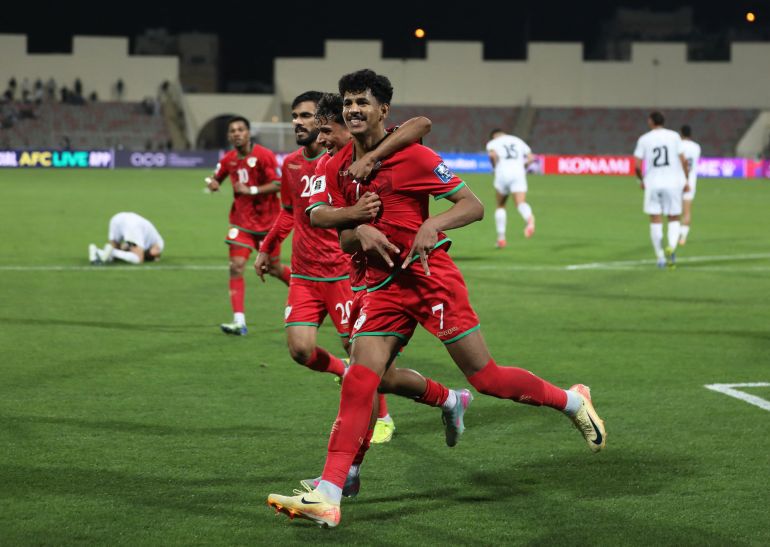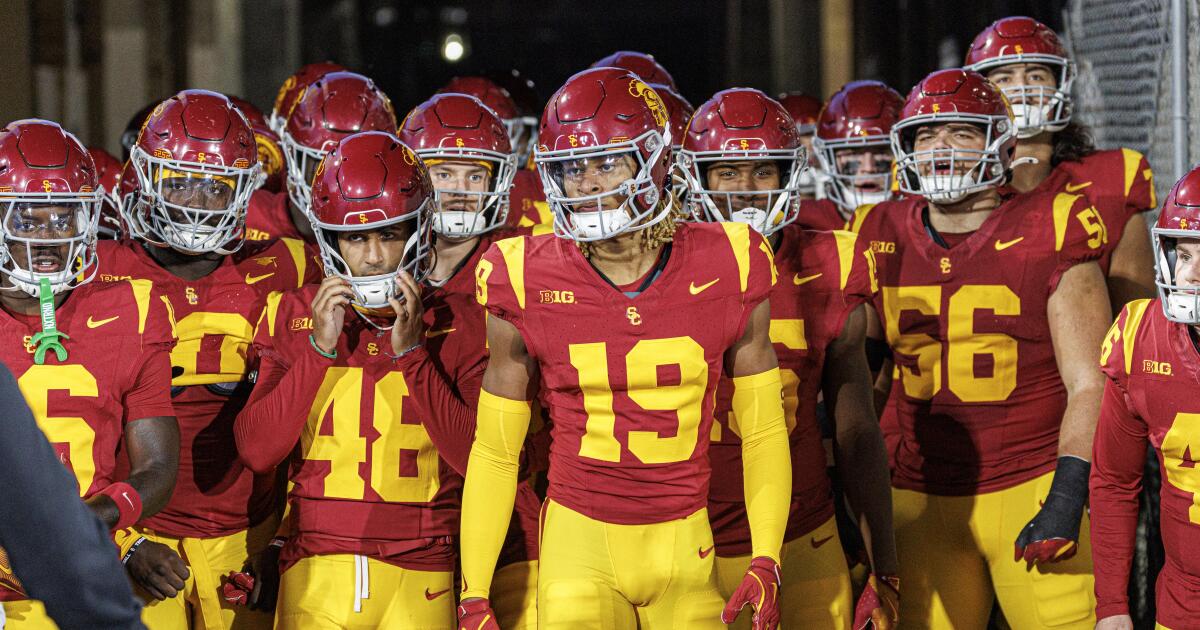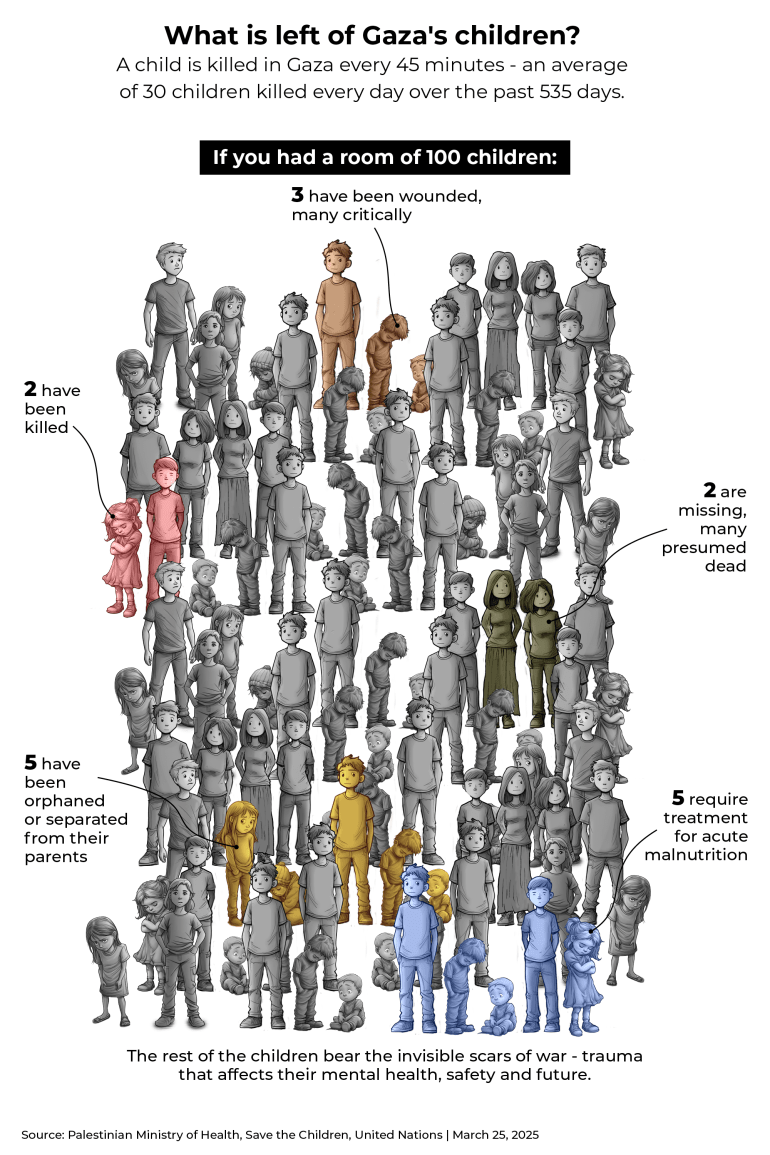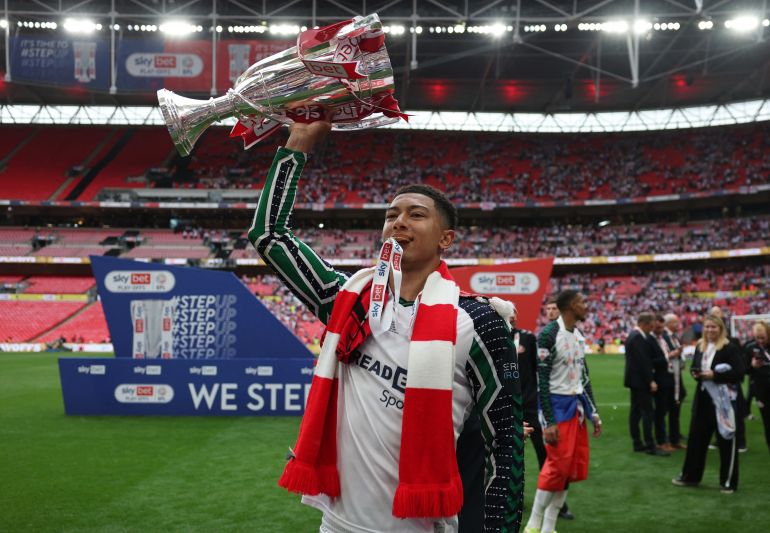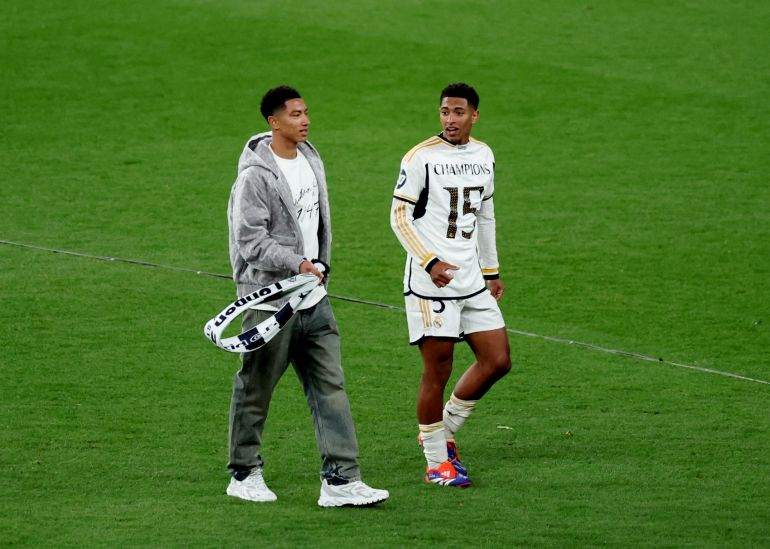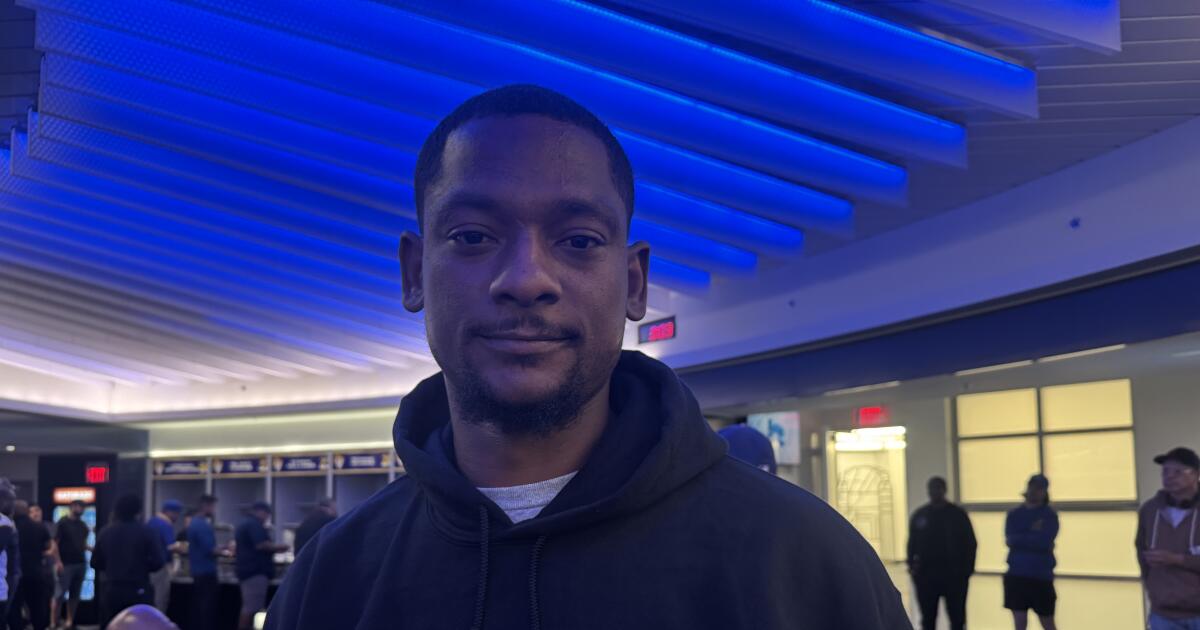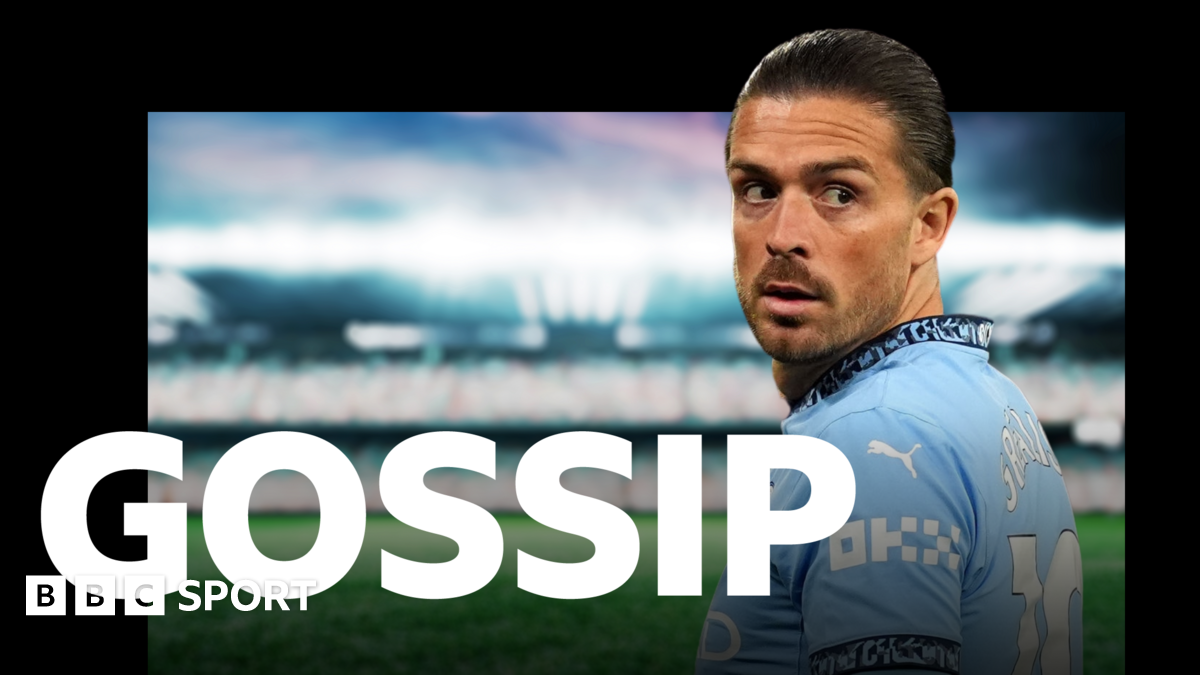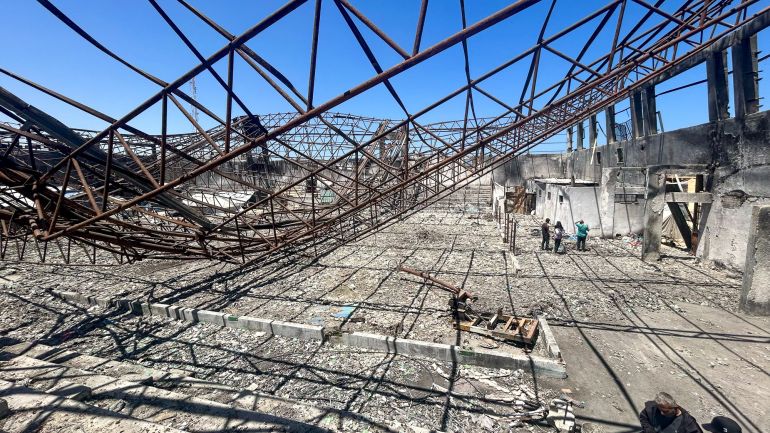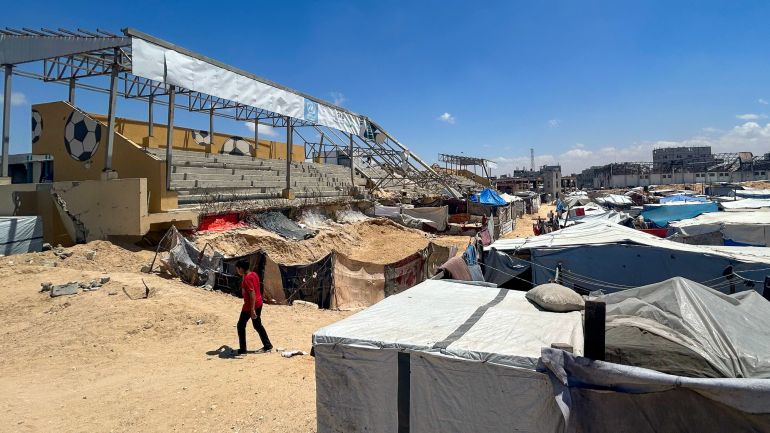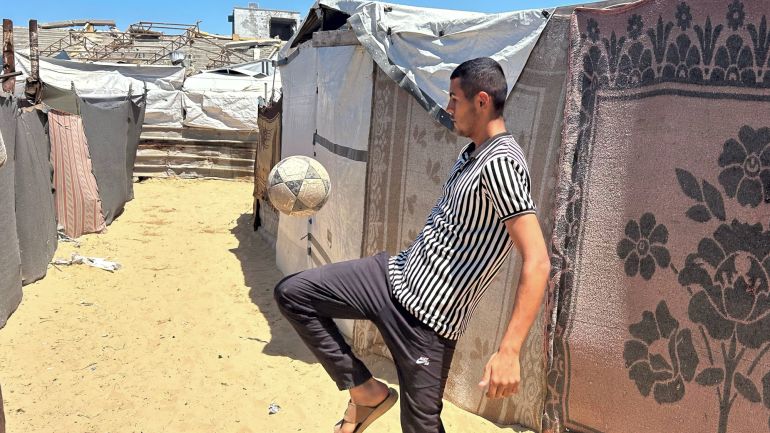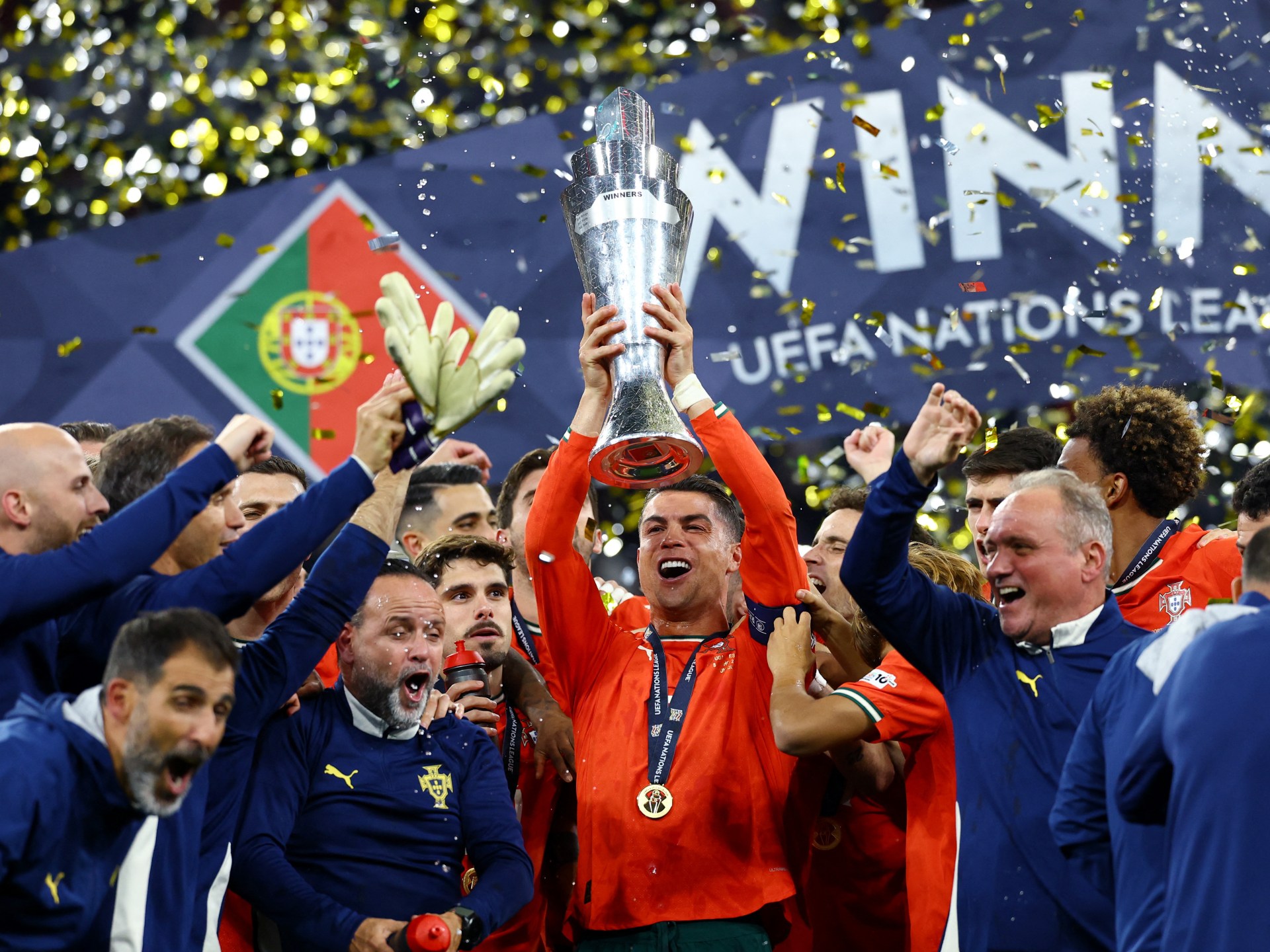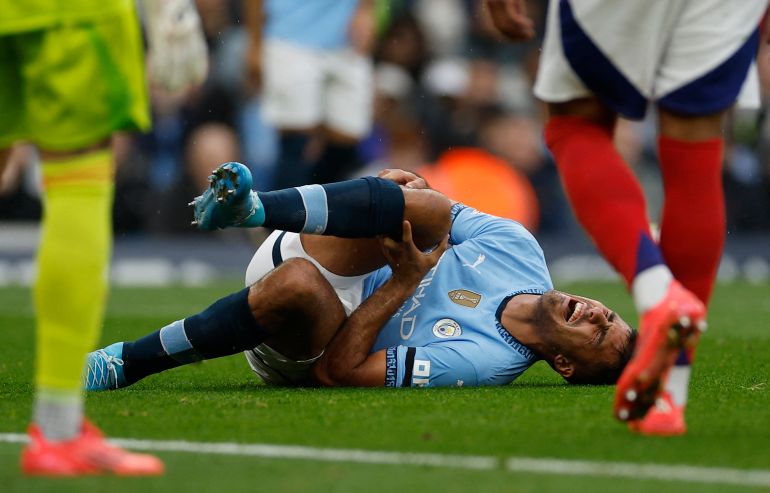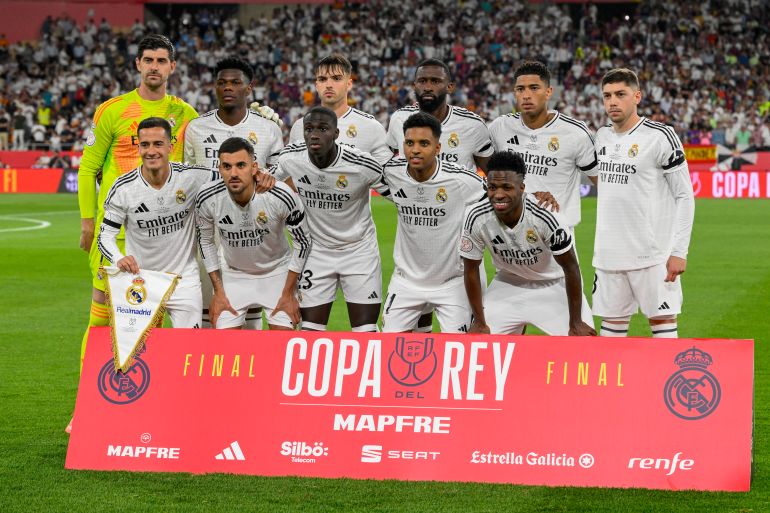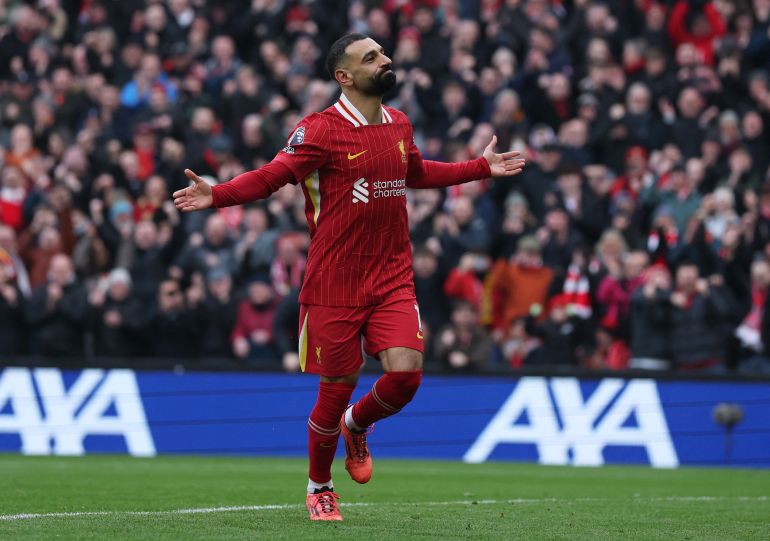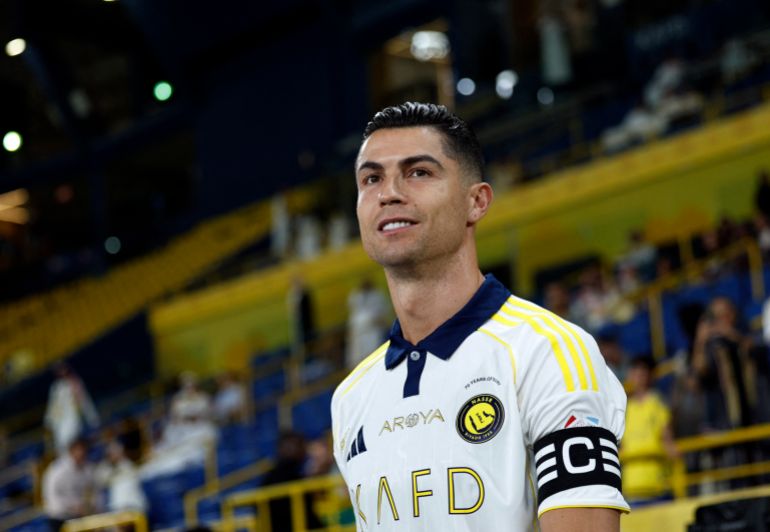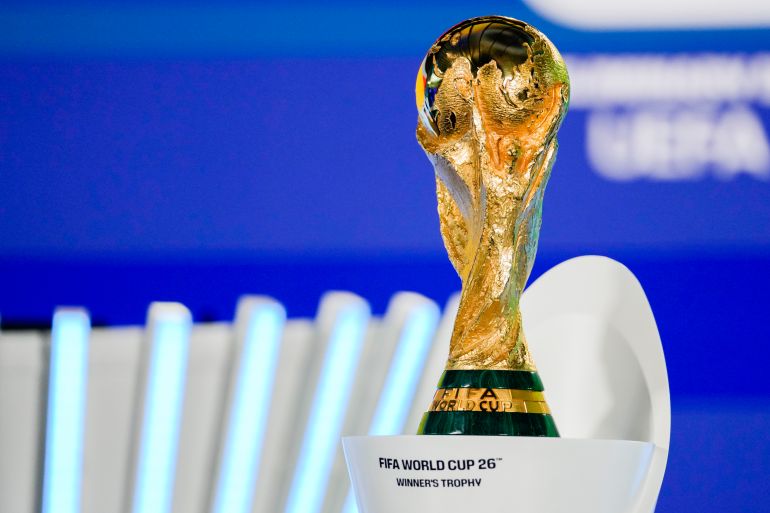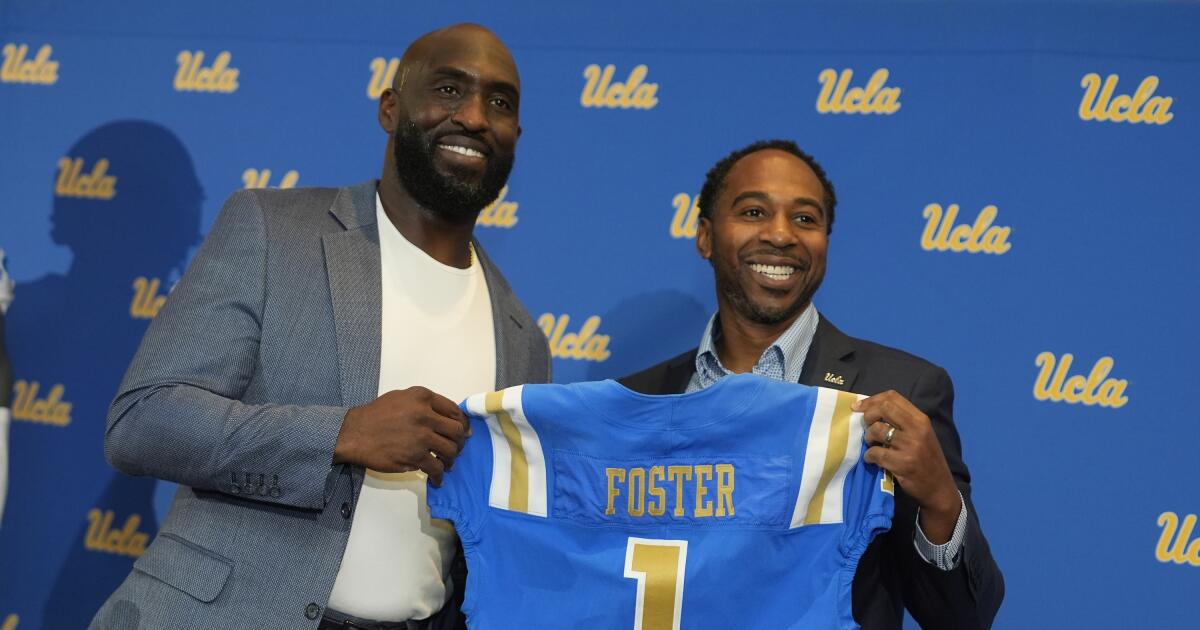FIFA Club World Cup 2025: Inter Miami vs Al Ahly – preview, teams, start | Football News
Who: Inter Miami vs Al Ahly
What: FIFA Club World Cup 2025
Where: Hard Rock Stadium in Miami, Florida, United States.
When: Saturday, June 14 – 8pm kickoff (00:00 GMT on Sunday, June 15)
How to follow our coverage: We’ll have all the build-up from 6pm (16:00 GMT) on Al Jazeera Sport.
The rebranded and expanded FIFA Club World Cup kicks off on Saturday, and the organisers have picked a plum tie to launch the 32-team tournament.
Inter Miami and their star name, Lionel Messi, take on the most successful side in world football – Egyptian giants Al Ahly.
Al Jazeera takes a look at the first match of the monthlong event.
How did Inter Miami qualify for the Club World Cup?
Miami finished as the club with the most points in Major League Soccer’s (MLS) regular season, handing them a place at the Club World Cup instead of LA Galaxy, who won the MLS Cup, which is regarded as the highest prize in the MLS.
FIFA announced Miami’s addition to the Club World Cup in October after they broke MLS’s regular-season points record with a 6-2 win over New England Revolution to reach 74 points – one better than the previous record set by New England in 2021.

How did Al Ahly qualify for the Club World Cup?
Al Ahly were crowned CAF (Confederation of Africa Football) Champions League winners two seasons ago to qualify for this tournament.
They were, however, dethroned as Africa’s continental kings last season, leading to the departure of the coach, Marcel Koller, following their loss to Mamelodi Sundowns in the semifinals of CAF’s showpiece.
Jose Riveiro, who coached Orlando Pirates of South Africa last season, has been appointed as the new coach, and Inter Miami will mark his first game in charge.
Does David Beckham still co-own Inter Miami?
Former England and Manchester United midfielder David Beckham bought a $25m stake in the franchise that would become Inter Miami in 2014. In doing so, he was exercising a clause from his contract during his playing days with the MLS.
Inter Miami eventually debuted in 2020 and is also co-owned by American business magnates, Jorge and Jose Mas, although Beckham is very much the figurehead of the club.

How many Club World Cups has Messi won?
Messi is a two-time winner of the competition. The Argentine forward lifted the trophy with Barcelona on both occasions in 2009 and 2011. He may well come up against his manager at the time.
Much of Miami’s chances rest on Messi’s shoulders. “He’s in good shape this season. There were moments when we had to give him some time to rest, but he’s played the last 15 games, except for the match against Dallas when we rested the entire squad,” said Inter manager Javier Mascherano.
“We were also fortunate he was able to rest during Argentina’s last two games,” he added, referring to Messi playing 111 minutes in Argentina’s World Cup qualifiers against Chile and Colombia earlier this month.
“It’s our responsibility to create the right environment for him to shine.”
Are Al Ahly the most successful club in the world?
Al Ahly have won an astonishing 155 trophies, including their 45th league title this season.
That is balanced against Real Madrid’s 15 UEFA Champions League titles in the world’s premier club competition, along with the Spanish giants claiming the La Liga title on 36 occasions.

Who else is in Inter Miami and Al Ahly’s group?
Brazilian club Palmeiras and Portuguese giants Porto complete Group A.
Here is the full list of the eight groups:
- Group A: Palmeiras, Porto, Al Ahly, Inter Miami
- Group B: Paris Saint-Germain, Atletico Madrid, Botafogo, Seattle Sounders
- Group C: Bayern Munich, Auckland City, Boca Juniors, Benfica
- Group D: Flamengo, ES Tunis, Chelsea, LAFC
- Group E: River Plate, Urawa Red Diamonds, Monterrey, Inter Milan
- Group F: Fluminense, Borussia Dortmund, Ulsan HD FC, Mamelodi Sundowns
- Group G: Manchester City, Wydad, Al Ain, Juventus
- Group H: Real Madrid, Al Hilal, Pachuca, FC Salzburg
Head-to-head
This is a first meeting between the sides as the Concacaf representatives come face-to-face with the CAF (Confederation of African Football) square up.
Inter Miami team news
Coach Javier Mascherano has been forced to re-shuffle his backline due to a string of injuries.
Fullback Jordi Alba, fellow defender Gonzalo Lujan and defensive midfielder Yannick Bright have all been ruled out of the Group A clash.
“Hopefully they will be available for the second game,” Mascherano told a news conference on Friday.
Alba, one of Messi’s former Barcelona teammates, is sidelined with a hamstring issue. There were also concerns regarding the fitness of centre-back David Martinez.
“David had some kind of pain yesterday, and we did not want to take any risks,” said Mascherano.
“The reality is that throughout the season, the team have dealt with injuries, but the players who stepped in rose to the challenge. That gives us peace of mind,” he said.
Al Ahly team news
The Egyptian side have been in the US for two weeks and have already played a warm-up match against fellow Club World Cup participants Pachuca. The Mexican club won 5-3 on penalties after a 1-1 draw on Sunday.
Riveiro has a fully fit squad to choose from, which is spearheaded by former Aston Villa forward Mahmoud Trezeguet.
How much does the Club World Cup winner receive?
The total prize pot is $1bn, with the champions earning up to $125m.
About half of the $1bn will be divided between the 32 clubs, with the amount per club based on sporting and commercial criteria.
